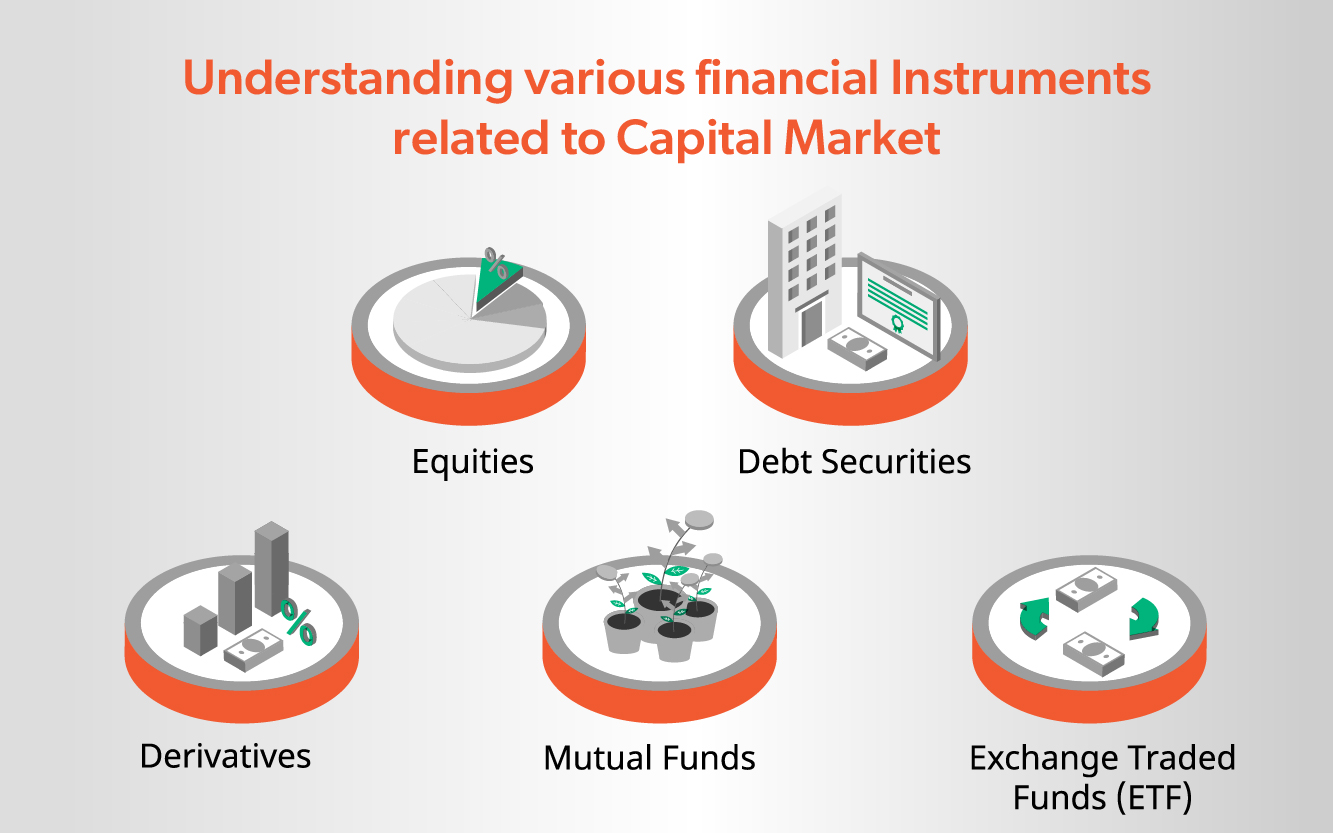

Financial instruments are contractual agreements outlining the relationship between two parties, where one party is indebted to the other. These agreements function as tradable assets or investment tools. Examples include stocks, derivatives, bonds, exchange-traded funds (ETFs), and mutual funds, all of which are traded on stock markets. Securities can generally be divided into two groups: equity-based, such as stocks representing ownership in a company, and debt-based, like bonds and loans signifying an investor’s loan to a borrower. Let us discuss these various types one by one.
Equities represent one of the most favoured financial assets in capital markets. While they hold the promise of substantial returns in a brief period, they are equally characterized by their volatility. Essentially, shares signify ownership stakes in companies, with investors acquiring them with the intention of selling at a profit, typically by purchasing at lower prices and selling at higher ones. Trading of shares occurs on stock exchanges like National Stock Exchange (NSE) and Bombay Stock Exchange (BSE). Investors foresee growth and value escalation over time, thereby reaping benefits from capital gains and dividends.
Corporations and governments issue debt securities to secure funds for their expansion or developmental endeavors. Investing in these securities enables investors to accrue interest from the issuer. Unlike equity investments, holding debt instruments does not grant ownership rights in the issuing entity. Bonds, which promise to repay a specified interest amount by a predetermined date, deem safer investments compared to other instruments.
Mutual funds collect funds from numerous investors and allocate them across a diverse array of assets, including stocks, bonds, and various other asset types. The primary aim of mutual funds is to yield risk-adjusted returns for investors over an extended period. Fund managers task themselves with making investment choices to fulfill the fund’s investment objectives.
Exchange-traded funds (ETFs) operate akin to mutual funds but are just like individual stocks. Their design aims to mirror the returns of underlying indices, sectors, commodities, or asset classes almost identically.
An investor ought to select a financial instrument based on their tolerance for risk and their anticipated returns.
To know more about our education offering in the fields of trading and investing go through our various courses and select the one which suits your requirements. To know more about these courses you may also attend our Free Webinar.
By enrolling in this stock market course, you can learn the basics and the various aspects of trading.